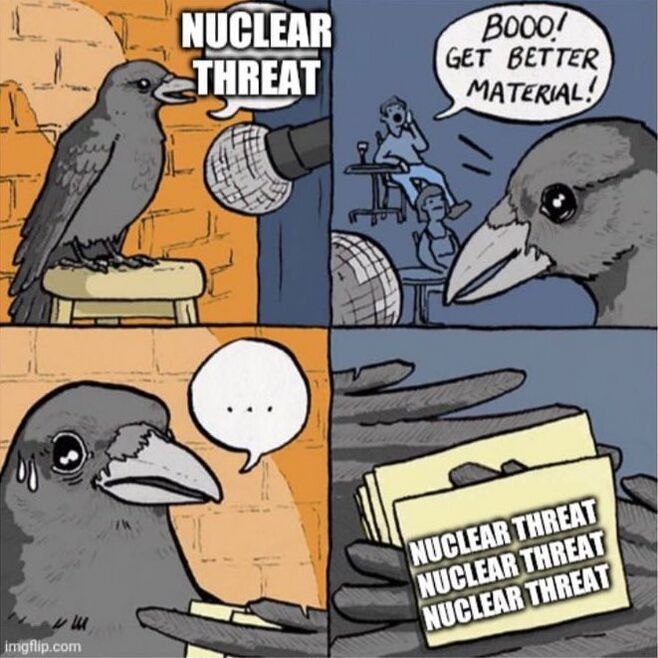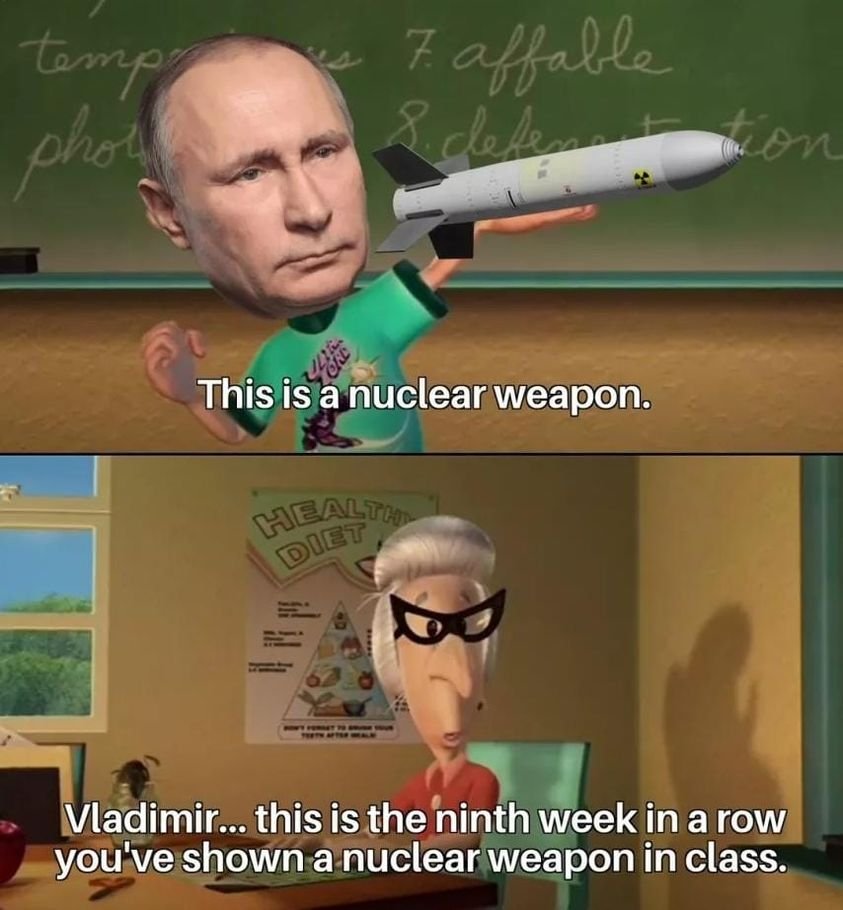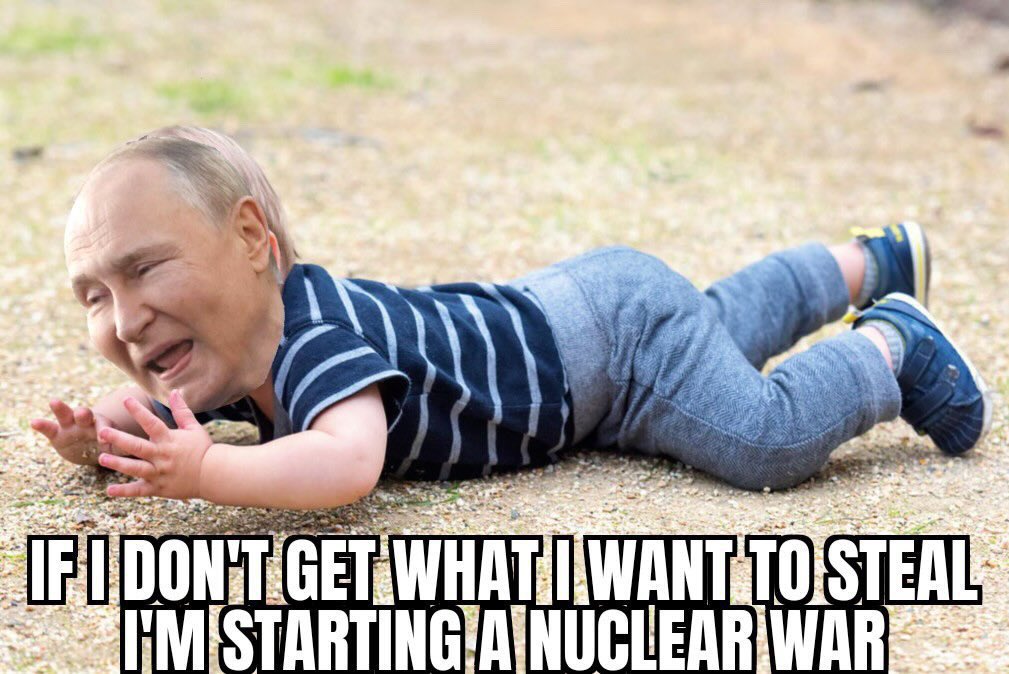In today's #vatnik soup I'll introduce a Ukrainian-born, Russian Mafia boss Semion Mogilevich. He's been described by the FBI as "the most dangerous mobster in the world" & he's been accused of weapons trafficking,contract murders, extortion, drug trafficking & prostitution.
1/16
1/16

Some reports state that Mogilevich made a significant amount of money as a middle man selling jewelry and artwork belonging to Jews who emigrated from Kyiv during the 1980s. For this, he was convicted to prison twice: his first stint lasted 3 years and the 2nd 4 years.
2/16
2/16

In 1995, head of the Solntsevskaya Bratva, Sergei Mikhailov allegedly tried to execute Mogilevich in Prague over a disputed payment of 5 million USD. They were supposed to attend a birthday party at the Mogilevich-owned restaurant "U Holubů", but Mogilevich never arrived ...
3/16
3/16

... and the place was raided by the Czech police. It's believed that Mogilevich had been warned about the attempt by a senior figure working for both the Czech police and for Russian mafia.
4/16
4/16
Between 1997-1998 Canadian journalists exposed a Russian Mafia operation trading on the Toronto Stock Exchange. The operation was eventually raided by the FBI and the company's shares worth 1 billion USD became worthless overnight.
5/16
5/16

He was also suspected in taking part in a scheme where untaxed heating oil was sold as highly taxed car fuel. This operation resulted in massive tax losses for several Central European countries, and for example in Czech Republic the scheme is estimated to have cost ...
6/16
6/16
... around 5 billion USD, all paid by the Czech taxpayers. A journalist uncovering the scandal also became a target of an assassination attempt.
Since 1998, Mogilevich's Inkombank participated in a money laundering scheme through the Bank of New York - this operation ...
7/16
Since 1998, Mogilevich's Inkombank participated in a money laundering scheme through the Bank of New York - this operation ...
7/16
... laundered approximately 10 billion USD. In 2003, he was placed on the FBI's Most Wanted list. Their previous efforts on catching him for arms trafficking and prostitution had faltered, so they charged him with large-scale fraud.
8/16
8/16

In Jan, 2008, Mogilevich was arrested for suspected tax evasion in Moscow. His bail was posted and he was released in Jul, 2009. Russian interior ministry stated that he was let go on bail because the charges "are not of a particularly grave nature".
9/16
9/16

This warrant was updated on Apr, 2022, and they now offer 5 million USD for information "leading to the arrest and/or conviction" of Semion Mogilevich.
He's closely associated with Solntsevskaya Bratva, an organized crime group.
10/16
He's closely associated with Solntsevskaya Bratva, an organized crime group.
10/16

According to the FBI, Mogilevich was their key money-laundering contact during the 80s. Cable leaks published by WikiLeaks in 2010 suggested that the gang continues racketeering operations under the protection of the FSB.
11/16
11/16
The same leaks also revealed that Mogilevich is in control of the Swiss-registed natural gas company RosUkrEnergy and that he is a partner of Raiffeisen Bank. Officially, the former is 50% owned by Gazprom and the other 50% belongs to Dmytro Firtash and Ivan Fursin.
12/16


12/16



Based on Taras Kuzio, a non-resident fellow at Johns Hopkins-SAIS’ Center for Transatlantic Relations, "Fursin was a senior figure in the Mogilevich criminal organization".
13/16
13/16
Shortly before his death, the former FSB agent and defector Alexander Litvinenko suggested that Mogilevich and Putin had "good relationship" during the 90s. He was also well connected to the former mayor of Moscow, Yury Luzhkov,...
14/16
14/16

... former head of Ukrainian Security Service SBU, Leonid Derkach (as photographed here with Putin), and Ukrainian oligarch-in-exile Dmytro Firtash. Firtash has stated that he had to "ask for Mogilevich's permission" to do business in Russia during the 80s and 90s.
15/16
15/16

Semion currently lives freely in Moscow, and will remain a free man as Russia probably has no intentions of extraditing him to the US.
More information: upload.wikimedia.org/wikipedia/comm…
16/16
More information: upload.wikimedia.org/wikipedia/comm…
16/16
Support my work (and get some AI art!): buymeacoffee.com/PKallioniemi
Past soups: vatniksoup.com
Related soups:
Dmytro Firtash:
Past soups: vatniksoup.com
Related soups:
Dmytro Firtash:
https://twitter.com/P_Kallioniemi/status/1623234276371185666
• • •
Missing some Tweet in this thread? You can try to
force a refresh
































